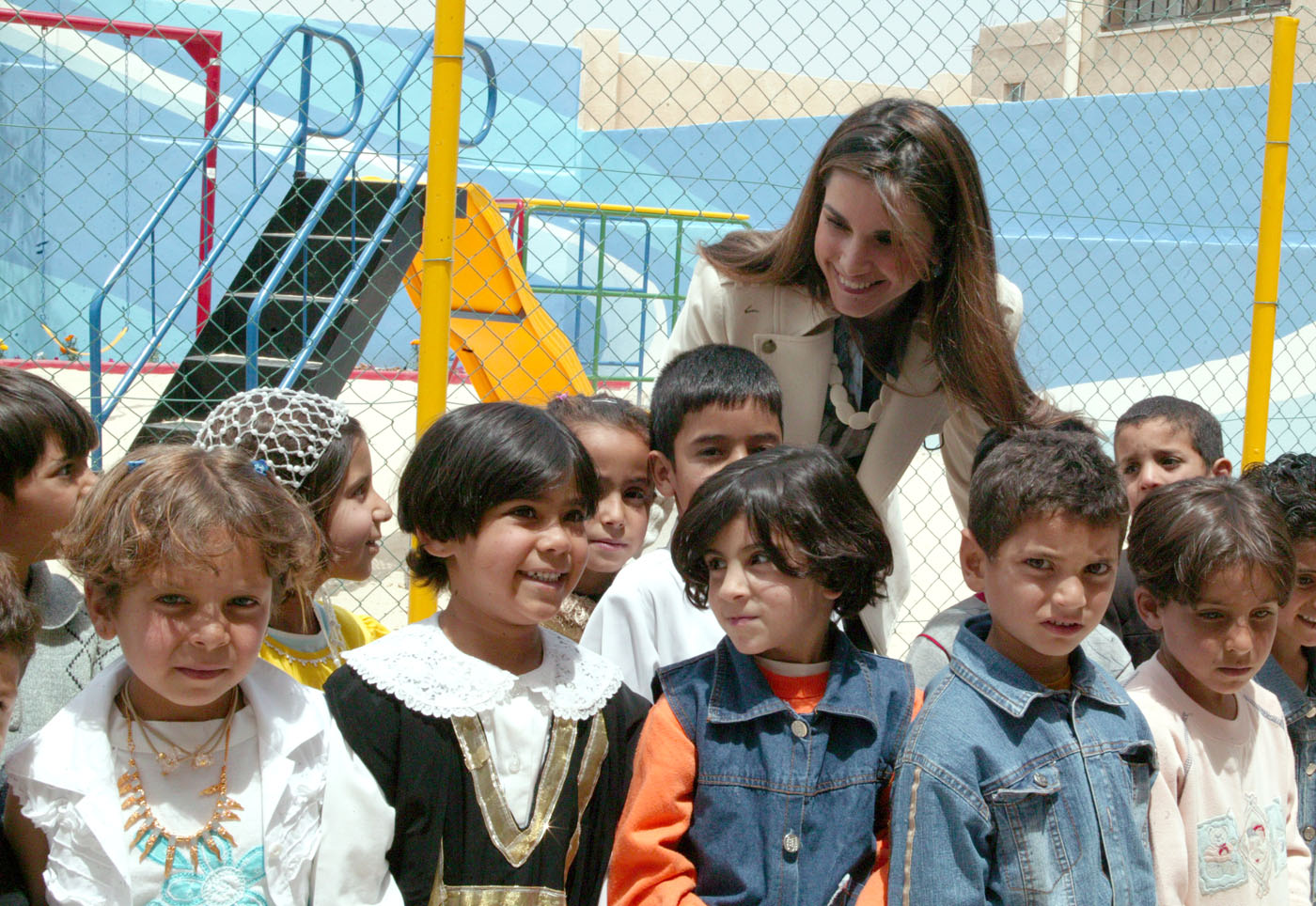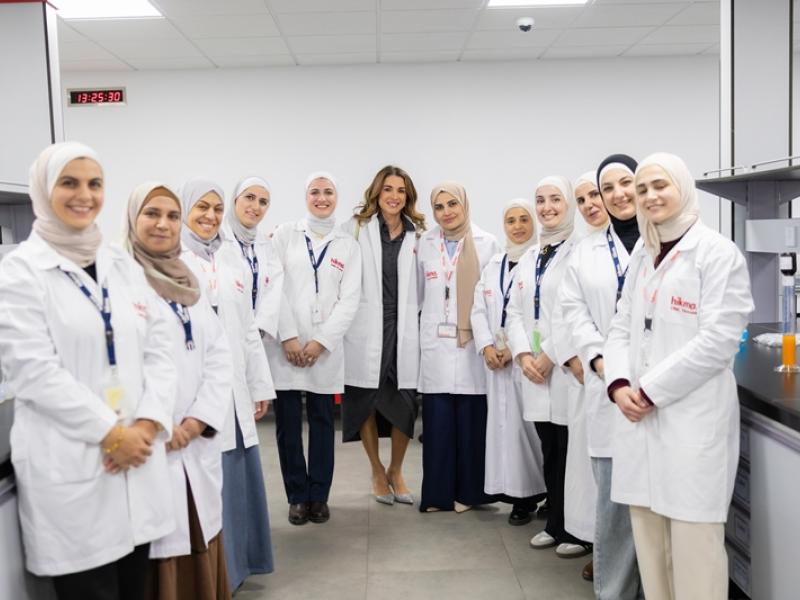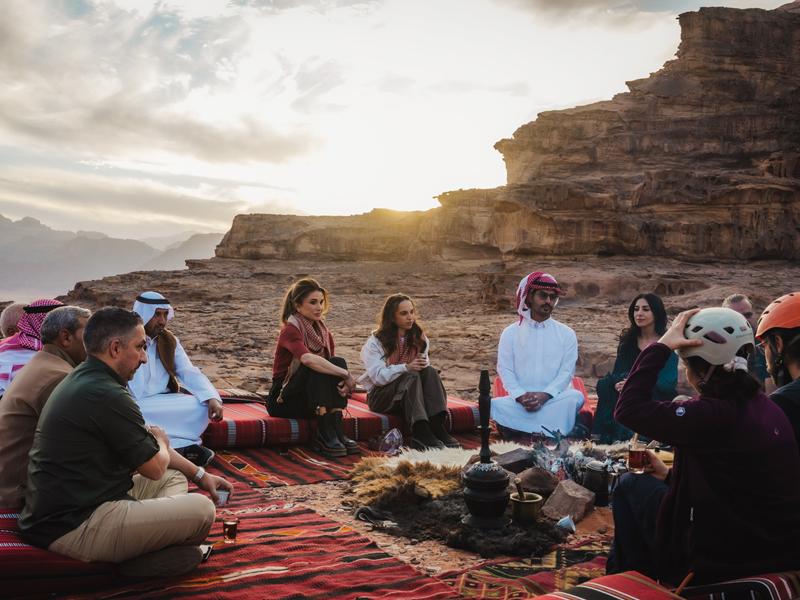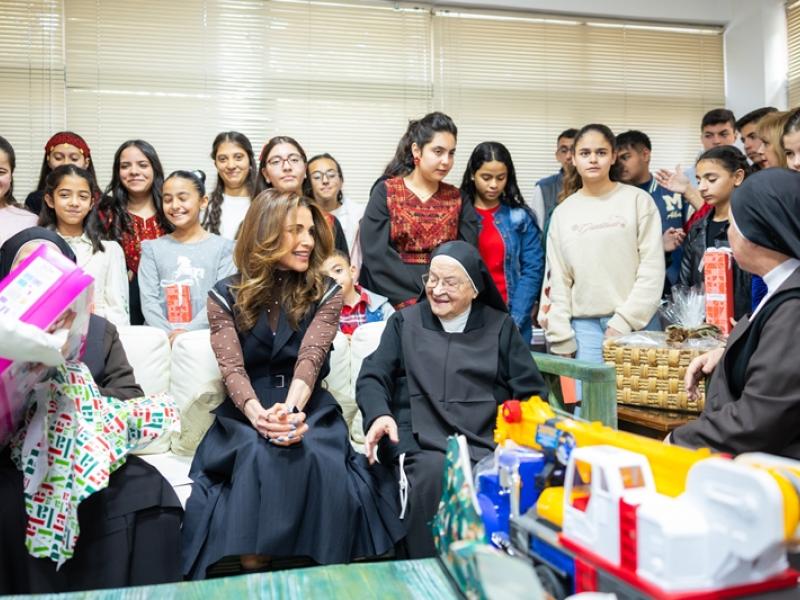(Office of Her Majesty, Press Department – Amman) Her Majesty Queen Rania Al-Abdullah, on Wednesday, inaugurated four pilot public kindergarten classes in underprivileged areas, which will be applied in other governorates of the Kingdom with the goal of improving access, quality and relevance of education for children and youth.
The inauguration ceremony was held at Manshiet Hisban Comprehensive School in Na’ur, as part of Jordan’s education reform program, under the Education Reform for the Knowledge Economy (ERfKE) initiative, which was launched in July 2003, and aims at re-orienting policy education, restructuring education programs and practices, improving physical learning environments, and providing improved and more accessible Early Childhood Education (ECE).
Minister of Education Dr. Khaled Touqan highlighted the ministry’s cooperation with USAID, the chief supporter of the five-year program, through its ERfKE Education Reform Support Project (ESP) which will enable the ministry to carry out the project in 100 public KG classrooms and 20 child resource centers Kingdom-wide.
US charge d’Affairs Mr. David Hale, National Council for Family Affairs Secretary General Dr. Ruweida Ma’ayta, USAID Director Anne Aarnes and school officials attended the ceremony.
Two KG students invited Queen Rania to their classroom, where Dr. Tagreed Abu Taleb from ERfKE Support Project (ESP) briefed attendees on the KG project.
Queen Rania also dropped in at the handicraft exhibition organized by the secondary students of the Hisban School, before concluding her visit to the area by dropping in on families in Manshiet Hisban and checking on services provided to them.
Along with the Manshiet Hisban School, the Almanieh School, Um-AlUsud School, and Um-Abhara School KG classes were also launched concurrently before the program is applied in other governorates of the Kingdom.
The KG project entails furnishing KG classrooms and playground areas, as well as equipping them with modern learning and play materials. Training of ECE teachers-a total of 258, in using the first national ECE curriculum.
Upon its completion, in July 2008, the project’s beneficiaries will include: 10, 600 kindergarten children, 1,000 ECE professionals, 65,000 students aged 16-18, studying in the MIS program, and 2, 000 youth participating in the grade 9-11 pilot School-to-Career transition program.
With the aim of improving the access, relevance and quality of education for children and youth, ESP is providing support to the Ministry of Education’s Reform Program through two major components, within which the four public KG were renovated: Improve and Expand ECE and Youth, Technology and Careers (YTC).
The first component entails improving the physical appearance and readiness of ECE
facilities, modernizing and updating the ECE curriculum, and strengthening the skills of ECE
professionals. The second component, however, deals with enhancing the curriculum for the new Management and Information Stream (MIS) in grades 11 and 12 to better prepare youth for the workforce as well as integrating the use of information and communication technologies (ICTs) into teaching and learning in the MIS program, amongst other issues.
At the beginning of the current scholastic year, Queen Rania launched the National Kindergarten Curriculum, which was formulated stemming from the necessity to address the needs and characteristics in the development and education of children during their crucial formative ages of early childhood.
In 1994, pre-school education was made part of primary schooling, but was not made compulsory. By the end of 2005, the Ministry of Education hopes to increase the number of children enrolled in kindergartens from 28.5 per cent to 35 per cent, by an expansion of public pre-schools in remote areas.



